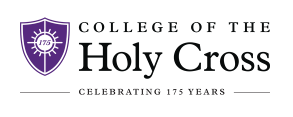HOLY CROSS SUMMER (MAYMESTER) 2025
HAVANA, CUBA
"Revolutionary Health in Cuba"
FACULTY: Holy Cross professors Ana Ugarte and Carmen Alvaro Jarrín
DATES: Depart the U.S. on Saturday, May 31, 2025 with arrival in Havana on Sunday, June 1, 2025. Departure from Havana on Saturday, June 28, 2025.
PLEASE NOTE: Maymester activities, beginning as early as 8:00 AM and ending as late as 11:00 PM, are scheduled for every day, with the exception of two free weekends. Students are required to participate fully in every Maymester activity unless in the case of a medical or personal emergency.
INFORMATION SESSION:
Please feel free to attend either session. It is recommended that interested students attend one session. If you cannot attend either session, please feel free to contact either Prof. Ugarte or Prof. Jarrín.
- Tuesday, September 17, 2024, 5:00-6:00 PM in Beaven 214
- Thursday, September 19, 2024, 5:00-6:00 PM in Beaven 214
PROGRAM DESCRIPTION:
This Maymester program proposes to delve into the complexities of Cuba’s health care system, exploring its successes, its failures, and its contradictions. It is well known that the Caribbean island’s health indicators rival those of wealthy industrialized nations, a phenomenon that is often referred to as “the Cuban paradox.” Cuba’s health care system not only ensures universal access, but also emphasizes prevention-based primary care, and has developed an advanced biotechnological industry—the creation of two highly effective Covid vaccines confirms it. This Maymester program will examine Cuba’s unique health care system by drawing on the intellectual and creative strengths of the Health Humanities field, combining film and literary studies in Spanish with Anthropology. Students will be based in Havana for the majority of the program, and stay with host families. In addition, they will participate in day excursions to the surrounding countryside, as well as overnight trips to different provinces.
This program seeks to illuminate medical pluralism in Cuba. On the one hand, Cuba tends to rely on, and promote, biomedical and biotechnological interventions in health care (biomedicine or Western medicine applies biological, biochemical, and physiological principles to clinical practice and research). On the other hand, Medicina Tradicional y Natural (MTN) (traditional and natural medicine) has officially been recognized by the Cuban Ministry of Health, and plays a crucial role in Cuban society. MTN proliferated after drug and medical supplies shortages caused by the collapse of the Soviet Union in 1989 and the tightening of the US embargo. MTN includes acupuncture treatments––Havana has a vibrant Chinese-Cuban community––as well as the knowledge embedded in the Afro-Cuban religion of Santería, such as the preparation and use of medicinal herbs. While students will examine the racializing logic that stigmatizes Indigenous and Afro-Caribbean forms of knowledge, they will also explore how and why ancestral healing practices can synergistically cooperate with biomedicine. For this purpose, they will do related readings, watch and discuss films, attend lectures, and visit hospitals, clinics and medical schools in Havana.
Likewise, students will explore caring practices that take place outside governmental apparatuses. In the context of an authoritarian regime where oppression permeates the different layers of society through bureaucratic and institutional violence, censorship, and political repression, counter-hegemonic forms of health care become acts of resistance and empowerment. During their stay in Havana, students will live with host families not only to experience cultural and linguistic immersion, but also so that they can witness how Cubans negotiate their health and well-being on a daily basis, including food availability and preparation. The course will thereby not only pay attention to official health institutions and health care policies, but will also focus on the lived experiences of ordinary Cubans. Students will have opportunities to analyze and reflect on these experiences as they are represented in films, literature, and art, as well as through ethnographic interviews on issues of health and well-being that they will conduct for their final projects.
Cuba is a safe and highly attractive destination. During their stay in Havana and through the different travel experiences in the island, students will have multiple opportunities to enjoy Cuba’s cultural richness (through dance, music, food, arts, and literature).
CREDIT: Students receive the equivalent of one Holy Cross credit. For Spanish Majors, it counts as an elective course toward the major. For Anthropology Majors and Minor, it counts as an elective toward the major and minor. The course carries no prerequisites.
HOUSING: Students and faculty will be housed at family homestays in Havana, Cuba.
COSTS: The estimated cost of the 4-week program is approximately $6,300 - $7,000. INCLUDES: tuition, housing, breakfast and dinner daily at homestays (including weekends), transportation in Cuba, and admission/entrance fees for all field trips. DOES NOT INCLUDE: the cost of round-trip airfare, lunch and food enroute to/from Cuba, passport expenses, personal expenses, Very limited financial aid is available for this program.
OTHER LOGISTICS: Cuba is an inherently safe country that is Spanish speaking, so knowledge of Spanish is highly preferred. Most family-owned restaurants and businesses accept payments in U.S. dollars, meaning no currency exchange is necessary. All travelers will need a valid passport to enter/leave Cuba.
APPLICATIONS: Open Sunday, September 15, 2024 via the Study Abroad online application portal at sa.holycross.edu and close at midnight on Friday, November 1, 2024.
DATES AND PRICES SUBJECT TO CHANGE
